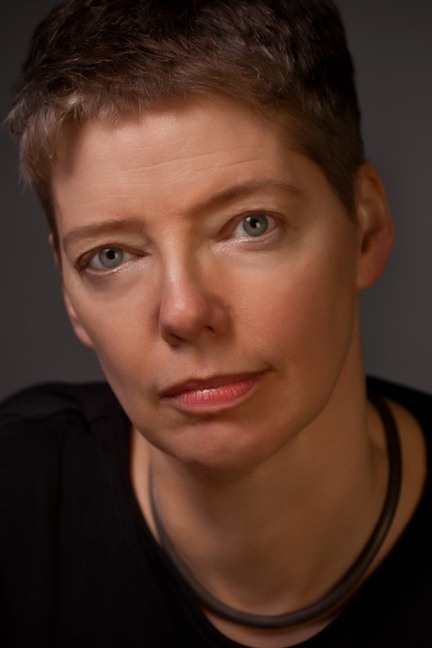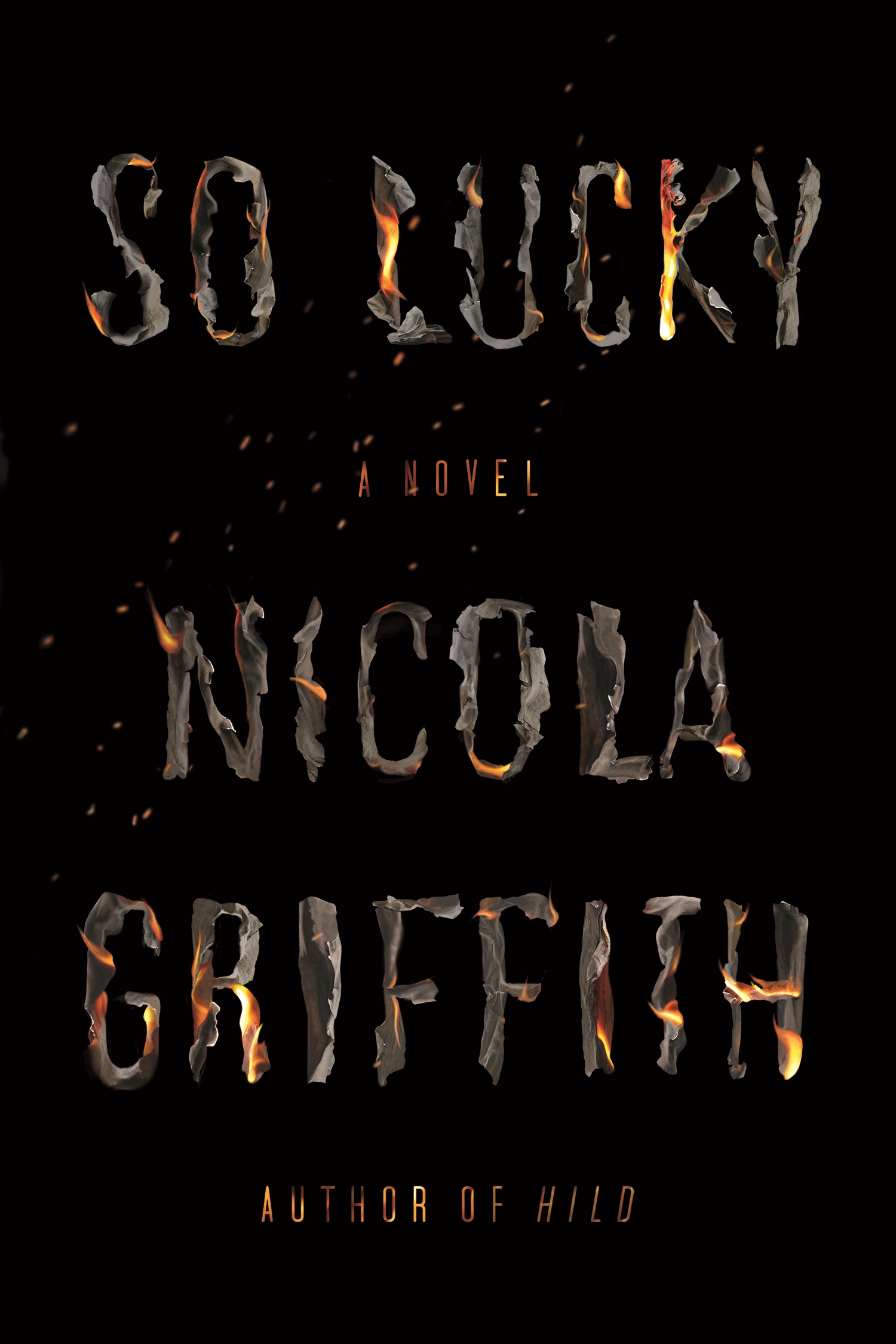So Lucky, the new novel from Nicola Griffith, opens as a story about disability, identity, and discrimination. Then the murders begin. The protagonist Mara is diagnosed with multiple sclerosis right at the beginning of the book and spends half the novel adapting to a tsunami of personal and professional changes, while finding a support network of others who are also dealing with MS. But then she discovers that one of those people has been brutally murdered, and the violence continues. Suddenly, the book has become a thriller, even as Mara continues to work through her new identity. The brilliance of So Lucky lies in the seamless merging of genres, giving Mara plenty to do in the world even as she wrestles with a wholesale transformation in her sense of self.
We are in a cultural moment when disabled creators and consumers of media are organizing to create and elevate better representations of disability in literature, television, and film. The challenges include not only getting the details right, but telling good stories that don’t get mired in didacticism. Griffith is part of this movement. She published her first novel in 1993, and her work includes speculative fiction, contemporary realistic novels, and the spectacular medieval historical novel about an early medieval saint, Hild (2013). She also recently received a Ph.D. from Anglia Ruskin University in the United Kingdom. For her dissertation, Griffith performed literary analysis in part on her own fiction, which forced her to reconsider her methods and goals as a writer. She hosts regular Twitter chats about disability and literature under the hashtag #CripLit. One day, Griffith says, she unearthed an old draft of a novella about a woman with MS, written not long after Griffith was diagnosed with the disease herself, and started writing. So Lucky is the result.
Pacific Standard spoke with Griffith over the phone about her new book, and the challenges of telling good stories about disability.

Can you start by telling me a bit about the process of writing this novel? Why this novel right now? How do the thriller elements link to your goals about disability and representation?
I was diagnosed with MS in 1993, and a few years later I was watching TV, and there was a segment about a man in a wheelchair who had been tortured and killed. And I suddenly was hit with this sense of disability as vulnerability, literally as victimhood in that way, being a target. I wanted to write this. I wrote a draft, a short novella, and I sold it … then I pulled it from publication. The story was wrong. So I stuck it in a drawer and forgot about it, but it was always knocking at the back of my head.
What changed?
I wrote a blog post a couple of years ago called “Coming Out as a Cripple,” thinking about disability in social terms. It was at that point that I suddenly realized what the problem was [with So Lucky]. The original version relied on an epiphany of a central character. It was using a disabled person as a metaphorical opportunity for the education and entertainment for non-disabled people.
Meanwhile, through all this, you’re writing other books and working on a Ph.D.?

(Photo: Nicola Griffith)
I interrupted my next Hild book to do a Ph.D. and then I interrupted my Ph.D. to do this book. I sent off the first draft of my Ph.D. thesis and then I had this three-week period where I had no deadlines. I thought, well, I’m going to tackle this story. I thought it was going to be a short story, but I sat down and this thing came tearing out. By the time the end of the holidays came and I got my thesis back, I had the first draft of So Lucky. Then I met my publisher for lunch in May of 2017, and he said, “I’ll publish.” Kind of record timing.
Is there a connection between your dissertation and this book?
It was actually the Ph.D. that got me to write So Lucky. My thesis was on what I do [as a writer], how I create “focalized heterotopias.”
Which means what?
It’s my portmanteau. For my focalized character, through whom the reader understands the text—the protagonist—I create a heterotopia, an othered space. Let’s take Hild as an example: Hild is queer. She’s a woman, but she’s never punished for being a woman or being queer. She’s not threatened with rape. There’s no homophobic violence. Other women in the book are not in a heterotopia, so they have a harder time.
Right, so you typically present a story in which the main character is grounded in her differences and the world doesn’t punish her for them. That’s not at all your approach in this new book: Mara is alienated from her own disability throughout most of the book.
So Lucky is different. It wasn’t about normalizing Mara’s difference; the book is about discovering her difference. The closest in queer fiction would be a coming-out narrative, and I’ve never wanted to do that. I just spent a whole year writing a Ph.D. that says I don’t do that! This book was not about norming disability, but [had to be about ] pointing to it.
Do you think readers—not to mention reviewers—understand what you are trying to do with this book?
I’ve run into some problems because of the speed [from submitting the draft to publication] figuring out how to describe the novel. Normally, by the time a book approaches the pre-publicity stage, I’ve sorted out with the publisher how to talk about the book, but this one is so new that it’s going out with the label “autobiographical fiction.” Partially my own fault because I didn’t have the label to give them.
What would be a better label?
A novel.
Hah!
It’s a novel. Mara is not me. I use some elements of myself in her as I do in all my books. There are parts of me in Hild, but Hild is not me.

(Photo: MCD/FSG Originals)
You have MS, Mara has MS, so can you explain a bit more what’s the problem with calling the novel autobiographical?
It’s a problem for women particularly because, historically, the idea that fiction is autobiography is used to dismiss the creativity of the author. It’s something that Joanna Russ pointed out in How to Suppress Women’s Writing, which everyone on the planet should read. [Russ] lays out methods to reduce the ability of women to be called artists. Labeling something as autobiographical is denial of agency or maybe pollution of agency. From a male author, autobiographical fiction is art, but for a woman, it’s: “She just transcribed her experiences. It’s not creative.” If this book [is] pigeonholed immediately in that way, it will perpetuate the idea [disability as tragedy] that I wrote this book to dismantle.
So this is a novel with a social purpose?
Disability: People think of it as sad, miserable, or perhaps inspirational. I didn’t want readers to see the book as miserable and sad. I didn’t want the book to be didactic, to be “why ableism is bad!” I wanted it to be a novel. I like books where stuff happens. I like my character to have interior life, and I like the reader to really empathize with that character, to live the life as she is living the life.
And I wanted disabled readers to read it and say, “Oh yeah, a book about people like me.” I wanted non-disabled readers to read it and just begin to get a clue of their non-disabled privilege. The novel does have a social purpose, but it doesn’t do social purpose.
Is that why you included the thriller elements?
I wanted actually to bring them in earlier, but every time I tried I couldn’t make it work. I needed this crossover point in the book where Mara starts to really seriously externalize her feeling of vulnerability and feeling like a victim, so she can do something about it. It’s out there, it’s no longer vague feelings of anxiousness. I couldn’t do it at the beginning.
Let’s broaden the conversation a bit as we wrap up. I had read Hild not long after it came out, but I first got to know you through the #CripLit chat about disability and literature. Can you talk about your collaboration with disability justice activist Alice Wong and the bigger issues facing disability in literature?
After “Coming Out as a Cripple,” I went on Twitter and said, “give me fiction I can read!” And people said no, we can’t, most of it’s rubbish. We need some #CripLit.
I started to think about movement fiction and identity fiction and queer fiction. The big beginning of queer fiction is the Well of Loneliness, and that is a miserable book. Stephen sacrifices herself at the end so [her lover] can have a “normal life.” [There’s a] parallel to Me Before You, in which the disabled character sacrifices himself so the non-disabled character can have a normal life—that shame and internalized hatred.
We are desperately in need of seeing ourselves. Telling our stories is what builds culture, builds a sense of self. I really want that to happen. For me there’s a really exciting feeling of creating my own culture now. I felt as though I was doing that a little with my very early novels, but there was already a lot of queer lit, and some of it was pretty good. There isn’t enough disability fiction, and I feel I’m part of a group building a culture. I’m really excited because I know disabled people will read this book and see themselves.
This conversation has been lightly edited and condensed for clarity.





